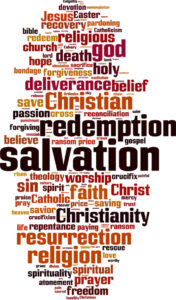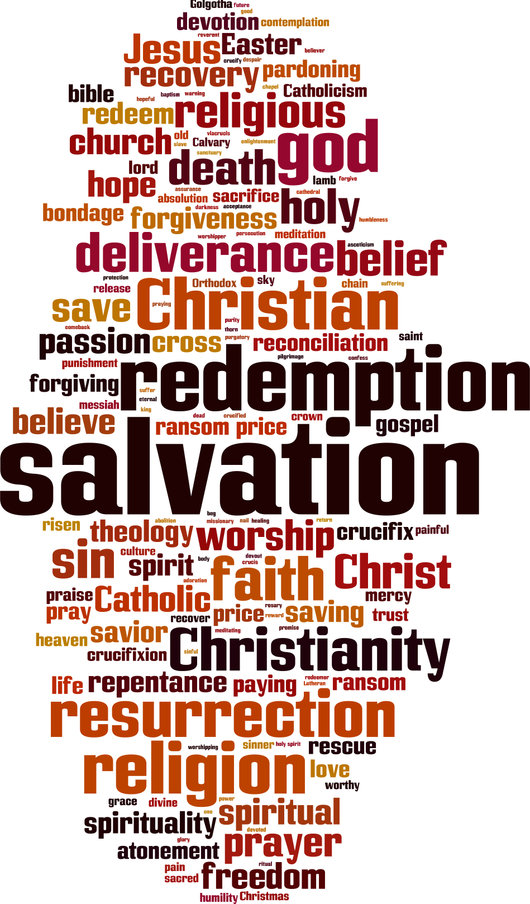
“This is a Program of Total Abstinence.” (Narcotics Anonymous, 5th edition, p, 81)
Addiction recovery based upon the Twelve Steps makes a distinction between abstinence and recovery, where abstinence is simply not using drugs or alcohol, and recovery is the result of combining abstinence with the change that occurs when an addict or alcoholic applies the Twelve Steps to their life. There is a ‘formula’ used to capture this, abstinence + change = recovery. This simple formula recognizes that mere abstinence without change is a ‘dry drunk’ that involves ‘stinking thinking.’ The desire to get high or drunk remains and will manifest itself in behavior and attitudes consistent with those the person did during their active drinking or drug use. A merely abstinent alcoholic or addict acts, talks, and feels like they did when drinking or drugging.
Change that is not based upon abstinence is not sustainable. It will not lead to recovery. Yet, you can sometimes achieve radical changes in addiction-related thinking, feeling and behavior without total abstinence. There can be a drastic reduction in the harmful effects of active drug and alcohol use. But for recovery, a change of heart and soul is needed—a progressive spiritual growth process that diminishes the need and desire for the mind altering and mood changing effects of drugs and alcohol.
Continuing to use drugs and alcohol, even in moderation, while working to change the need and desire for the high is like taking an antibiotic only until you feel better, and not for the full course of the required treatment. You only manage to diminish the harmful effects, which can return even stronger without a complete eradication of the original infection. Using drugs and alcohol is part of the problem; and simply diminishing the need and desire for getting high or drunk without concurrent abstinence cannot eradicate an addiction. Abstinence plus change equals recovery. As the Blue Book of Narcotics Anonymous says, “Complete abstinence is the foundation of our new way of life.” In other words, recognizing the need for ongoing abstinence is a prerequisite for recovery.
Terence Gorski, in Understanding the Twelve Steps, noted there were four tasks to completing the First Step. First, you admit that the use of alcohol or drugs has caused major problems in your life. Second, you admit the you are powerless to control the use of alcohol or drugs. Third, you admit your life has become unmanageable as a result of alcohol or drug us. And fourth, you admit that you are powerless to manage your life effectively as long as you continue to use alcohol or drugs. “When you have completed all four of these tasks, what decision do you have to make? What’s the only rational decision left. . . . You have to stop drinking.”
Things were starting to make sense. It was like a large jigsaw puzzle slowly being put together. The picture was beginning to appear. I started to feel good about being clean and having complete abstinence from all mind altering or mood-changing chemicals. (Narcotics Anonymous, p. 198)
Where does an addict or alcoholic go from here? If they are convinced by working through the First Step or living through the unmanageability of an active addiction that they are powerless over alcohol and drugs, they are right where addiction wants them to be. They have no hope; there appears to be no help. They crave another drink . . . joint . . . pill . . . fix . . . whatever. Their options are to die quickly or slowly; with or without their drug of choice. Psalm 86 says, “How long will your wrath burn like fire? Who can deliver his soul from the power of Sheol?” “Forever” and “no one can” are the only possible answers. But there is a Second Step: “Came to believe that a power greater than ourselves could restore us to sanity.”
I took my last drink one week into my second treatment. I was overcome by the obsession to drink after a hot day of fishing. The only thing I could find was a bottle of liqueur with about an ounce left in it. I guess I needed that last drink to show just how powerless over alcohol I was. In my heart, I surrendered. I couldn’t drink, and I couldn’t not drink. I hoped there was a Higher Power that could restore me to sanity, because I am sure couldn’t. (AA Grapevine, vol 62, no, 9)
The significance of this “Higher Power” is as essential for recovery as Jesus Christ is for salvation; but they are not the same thing. The ability to “worship according to one’s own understanding of the spiritual” was referred to as the saving grace of the 11th Step:
Sought through prayer and meditation to improve our conscious contact with God as we understood Him, praying only for the knowledge of His will for us and the power to carry that out.
Any kind of prayer and meditation is very difficult for many in early recovery. In the 11th Step there is a reaffirmation of “the freedom to worship according to one’s own understanding of the spiritual.” By the time anyone joins A.A. to address their alcoholism, he or she has been “out of touch” with spiritual things for a long time. For them to suddenly accept all that they had been rejecting would be almost impossible. “The principle of freedom embodied in the 11th Step opens the door to any individual seeking spiritual help by whatever path and through whatever concepts he himself prefers” (AA Grapevine, vol. 3, no. 4).
Although it is not the same path, this plan for recovery runs parallel to the plan of salvation.
God’s Plan for Salvation and Recovery
In Romans 6:1, Paul asked if we should continue sinning as a way to experience more of the grace and righteousness of God, then immediately answered with an emphatic denial: by no means! Through 6:11 he proceeded to describe our union with Christ; how we were baptized into His death (6:4) so that we too can walk in newness of life (6:4). Christ died to free us from sin (Ro. 6:6). Because if we died with Christ, we believe we will also live with him and be free from sin (6:7-8). Just as Christ died to sin, once for all, and lives to God, we should also consider ourselves dead to sin and alive to God in Christ Jesus (6:9-11).
Let not sin therefore reign in your mortal body, to make you obey its passions. Do not present your members to sin as instruments for unrighteousness, but present yourselves to God as those who have been brought from death to life, and your members to God as instruments for righteousness. For sin will have no dominion over you, since you are not under law but under grace (Romans 6:12-14).
When Paul exhorts us to not let sin reign in our bodies (Romans 6:12), he is telling us to abstain from sin. Because if we do sin, we open the door to be ruled by sinful passions (Romans 1:28-31). Since we are powerless over sin, we cannot control or resist our craving for more. There is no possibility for compromise. We cannot simply have a small taste of it every once and awhile. If we continue to sin, we will be ruled by our desire for it. In his commentary on Romans, Robert Mounce warned, “Sin continues in force in its attempt to dominate the life and conduct of the believer.”
Paul then more specifically exhorts us to not allow any part (or member) of us to be an instrument or weapon for unrighteousness; but to instead present our members as instruments for righteousness. See also Romans 12:1, where his exhortation is for us to present (the same Greek verb) ourselves as “living sacrifices.” There cannot be a corner or part of our being that is given over to sin. It will eventually lead to sin reigning in our “mortal bodies,” forcing us to obey its desires. In the Dictionary of Paul and His Letters, Martin Hawthorne said: “Union with Christ (Rom 6:2–11) compels behavior which is consistent with it (Romans 6:12–23).”
The fact that Paul commands us to not allow sin to reign in our mortal bodies means that it is possible for us to do so. Otherwise, it is a taunting mockery to command an individual who is powerless over sin to not sin. Such a command would only reinforce the despair and hopelessness of being under the dominion of sin (or addiction). Even though we have all sinned and have fallen short of the glory of God (Romans 3:23), sin will not have dominion over us because we are not under the law, but under grace (Romans 6:14).
We are not doomed to the eternal powerlessness and unmanageability of sin if we believe that Christ can save us from our body of sin and death (Romans 7:24-25). There is a power greater than sin and therefore Paul can command us to not sin. According to John Murray in his commentary on Romans, “Deliverance from the dominion of sin is both the basis of and the incentive to the fulfillment of the exhortation.”
Again, the parallel to recovery is clear. The addict or alcoholic must fully abstain from mind altering, mood changing substances. They can’t “present” themselves again to drugs or alcohol. If they do, they open the door once again to eventual domination by or slavery to addiction and its passions. Surrender to God in the Third Step means that after we present ourselves to him, we are no longer subject to the slavery of alcoholism or addiction—as long as we remain abstinent with God’s help in working the Steps.
If you’re interested, more articles from this series can be found under the link for “The Romans Road of Recovery.” “A Common Spiritual Path” (01) and “The Romans Road of Recovery” (02) will introduce this series of articles. If you began by reading one that came from the middle or the end of the series, try reading them before reading others. Follow the listing of the articles (i.e., 01, 02, or 1st, 2nd, etc.), if you want to read them in the order they were originally intended. This article is 9th in the series. Enjoy.





